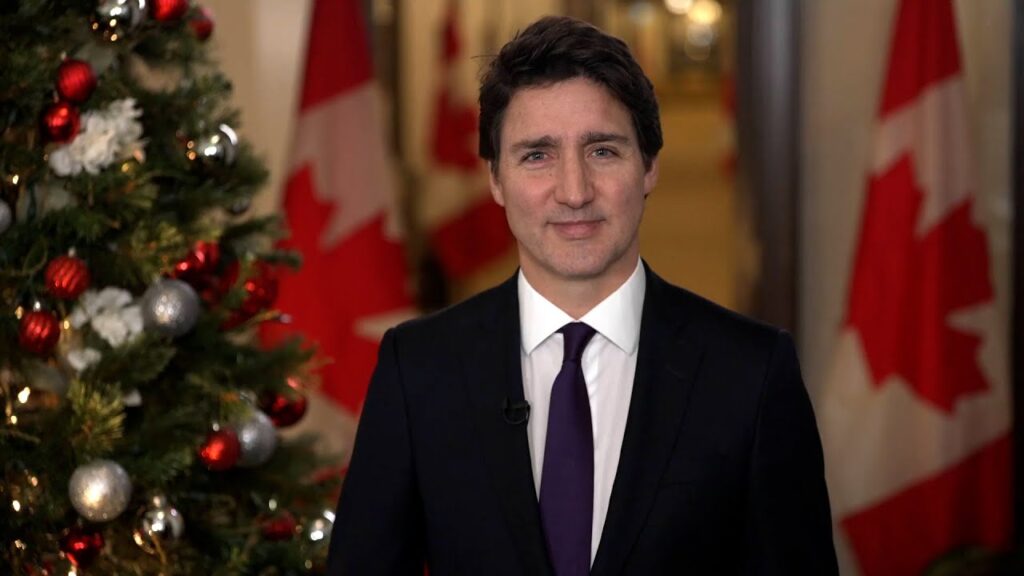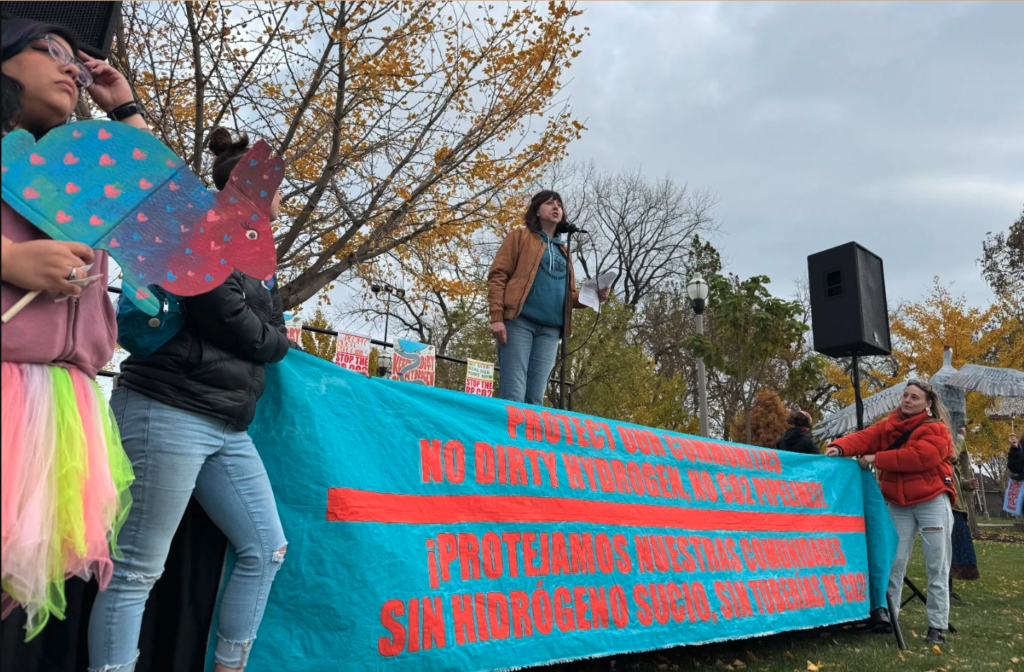Last week, in response to the hacked emails at East Anglia, Elizabeth May took the time to read every single email.
Providing context and analysis, her report goes a long way, giving us more than just the cherry picked nuggets that skeptics have taken out of context and doggedly been holding on to.
Here, she follows up with a response to the comments on her original posting…
DeSmogBlog comments require response:
I am a neophyte in the blogosphere. The first time something I have written for the Green Party site has been widely picked up was my article on the East Anglia scientists and the stolen emails. James Hoggan, Kevin Grandia, and Richard Littlemore do a powerful lot of good on “DeSmogBlog” and through James’ and Richard’s new book Climate Cover-Up.
Posting my CRU email blog on the DeSmogBlog site got it some attention, including in the New York Times. Reading some of the posted comments led me to want to rebut and share that rebuttal with Greens. You may need these points to do your own sand-bagging against the rising tide of skeptic/contrarian propaganda. Here is a sample of the nonsense with my response…
Ms May, with all due respect this is pure nonsence.(sic)
If you read the entire set how come you missed the emails of threats to those at ClimateAudit? How come you missed the one where they cannot account for the current cooling? Or how about the MANY where they conspire to black ball journals that keep publishing skeptical papers, get certain editors removed, and changing the peer reviewed process?
Or how to change the data mixing unrelated data, that hides the decline the treering data showed after 1961? How come you did not comment on these? JR Wakefield
Thanks to JR Wakefield, (although the message “with all due respect” would ring more sincerely if your headline had not been, “Lizzy, you missed the juicy stuff.”)
My point is there is no “juicy stuff.” There are intemperate messages from people writing in private about the levels of frustration created by years of harassment. None of us like to be besieged. Few of us have had to endure the levels of targeted harassment of the scientists in the CRU group at East Anglia.
There is one message where a colleague expresses concern that the models do not seem to account for the where the heat forcing of the trapped solar energy is going.
The discussion is started when Dr. Stephen Schneider, one of the world’s leading climate scientists, expresses concern that the BBC is mis-leading the public on current science:
Any of you want to explain decadal natural variability and signal to noise and
sampling errors to this new “IPCC Lead Author” from the BBC? As we enter an El Nino
year and as soon, as the sunspots get over their temporary–presumed–vacation worth a
few tenths of a Watt per meter squared reduced forcing, there will likely be another
dramatic upward spike like 1992-2000. I heard someone–Mike Schlesinger maybe??–was
willing to bet a lot of money on it happening in next 5 years?? Meanwhile the past 10
years of global mean temperature trend stasis still saw what, 9 of the warmest in
reconstructed 1000 year record and Greenland and the sea ice of the North in big
retreat?? Some of you observational folks probably do need to straighten this out as my
student suggests below.
Translation: BBC has seized on one year “cooling” and ignores the issue of time lags in the global climate system. As I tried to point out in the Munk Debates, climate modelling is not about a one year at a time climb in temperatures. It is significant at the level of decades.
You have to grasp time lags. The GHG we release today will have an impact on the climate for the next 100 years. The system is nearly infinitely large and complex, with land heating faster than oceans. As well, there can be confounding factors – sunspots on 11 year cycles or El Nino (referred to in the East Anglia emails as “ENSO” El Nino Southern Oscillations) that heat things up, volcanoes (like Mount Pinatubo or sulphate and particulates from burning coal that ironically) can act to mask the warming trend. These impacts are temporary and the climate models seek to screen them and see what anthropogenic forcing is doing to the climate. All the models for decades have shown that it is impossible to produce the warming trends the planet has seen when you exclude anthropogenic forcing.
Dr. Kevin Trenberth from the Boulder, Colorado National Centre for Atmospheric Research (NCAR) replied to Schneider. He has been for some time interested in better methods to account for the physics of the issues: where does the heat go when trapped at the earth’s surface by warming gases.
His work is described on the NARC website as “being used to validate coupled atmosphere-ocean climate models and understanding heat flows that are so important in climate change. He has continued to improve estimates of the global hydrological cycle. A particular focus is on changes in precipitation type, frequency, intensity and amount, and thus on how droughts and floods, and climate extremes change.”
In other words, in the following email, he is promoting is own area of research, not attacking the fundamentals of climate science.
The oft-quoted email sentence from his message of October 13, 2009 said:
“The fact is that we can’t account for the lack of warming at the moment and it is a travesty that we can’t. The CERES data published in the August BAMS 09 supplement on 2008 shows there should be even more warming: but the data are surely wrong. Our observing system is inadequate.”
A discussion ensues.
Dr. Michael Mann, Director of the Earth Sciences Centre at Pennsylvania State, replied the next day,
Kevin, that’s an interesting point. As the plot from Gavin I sent shows, we can easily
account for the observed surface cooling in terms of the natural variability seen in
the CMIP3 ensemble (i.e. the observed cold dip falls well within it). So in that sense,
we can “explain” it. But this raises the interesting question, is there something going
on here w/ the energy & radiation budget which is inconsistent with the modes of
internal variability that leads to similar temporary cooling periods within the models.
I’m not sure that this has been addressed–has it?
Dr. Tom Wigley, a senior scientist in the Climate and Global Dynamics Division, also at NCAR, and a fellow of the American Association for the Advancement of Science (AAAS) wrote:
Dear all,
At the risk of overload, here are some notes of mine on the recent lack of warming. I look at this in two ways. The first is to look at the difference between the observed and expected anthropogenic trend relative to the pdf for unforced variability. The second is to remove ENSO, volcanoes and TSI variations from the observed data.
Both methods show that what we are seeing is not unusual. The second method leaves a significant warming over the past decade.
These sums complement Kevin’s energy work.
Kevin says … “The fact is that we can’t account for the lack of warming at the moment
and it is a travesty that we can’t”.
I do not agree with this.
Tom.
(Emphasis added)
Other scientists point out that we are still not clear on how many sulfates are being emitted, particularly in the rapidly industrializing developing world. It is clear that sulfates (particulates) provide a cooling effect, even while carbon dioxide levels keep growing. In another post, the scientists discuss why NASA results show higher global temperature than the Hadley results from the UK. One conclusion is that the Hadley data does not have as many Arctic data points. Warming in the Arctic is 2-3 times faster than the global average.
By the next day, October 14, Trenberth writes that he is not challenging anyone, just making a point about the fact his area of research needs more attention.
In an open letter defending the East Anglia scientists (December 3, 2009), he wrote:
I am proud of what Phil and I did for Chapter 3 in AR4, and it is disappointing that the IPCC has not been more forthright in standing up for its procedures.
Dr. Trenberth’s private email is being distorted and touted globally as some sort of “smoking gun”, or to hear the industry-funded Pat Michaels “a mushroom cloud.”
There is no “smoking gun” here. It reads, as do all the email threads on closer examination, as scientists exchanging candid, off-hand, messages. They know each other well and often speak in short-hand. Clearly Dr. Trenberth is NOT arguing that the models have been cooked up to avoid a climate cooling trend. Nor is he denying that there is an urgent need to reduce GHG. He wants to see a clearer understanding of the energy dynamics on the planet.
Sadly, I see it has taken three pages of text to counter the one sentence “How come you missed the one where they cannot account for the current cooling?”
For JR’s other points, forgive me for just replying without copying and pasting in all the emails. There was no effort to “blackball journals.” There WAS a sad realization that one journal, in particular, had ceased to exercise the appropriate level of scientific rigour. It was publishing papers that could not have passed peer review anywhere else. The CRU emails did no object to the publication of the paper because the scientists disliked the authors or their conclusions, but because obvious and large mistakes had been made. “Shoddy work” was an apt description.
The journal, Energy and Environment, was discussed on a number of emails, especially after it published a terrible paper by Baliunas and Soon. The group of scientists, whose emails make up most of what was stolen, decided to put a serious peer-reviewed effort into debunking that article. The Energy and Environment Journal is not a top journal. It is not included in Journal Citation Reports which covers the top 6,000 journals. The name of the editor rang a bell. Sonja Boehmer-Christiansen, who is mentioned by the scientists concerned about the sloppiness of the work, was the source of a key footnote in Lomborg’s Skeptical Environmentalist. Lomborg claimed that negotiations to arrest climate change were driven “not, as you may have thought, [by] the prospect of possibleglobal warming” but by windmill manufacturers, climate researchers and other “institutionalized interests.” His source? Solely her name. No published article. Nothing. Just Sonja Boehmer-Christiansen.
The data problems plague people in many areas of science. Techy issues with computers and managing different platforms etc could drive a sane man mad. If this were a serious problem at East Anglia, clearly other scientists would not have the same results using their own systems and intellectual property to put the raw data into computer friendly formats.
The key point here is that the raw data (at least 95% of it) is available in the public domain, and has been for years. Independent scientists all around the world, sliced and diced in a wide variety of ways, keep pointing out that the planet has never had as much carbon dioxide in one million years, nor has it been this warm in the last 1,000 years.
Turning to another critic of my post:
In this instance it appears that this case will certainly be changing from Hackergate back to Climategate.
As it turns out, the source of the information in the e-mails and the data files at CRU is an employee at CRU Hadley. This individual is now in contact with Steve McIntyre over at ClimateAudit. The mole has even shared a highly sensitive data file that McIntyre requested under British FOIA laws but was denied. The data file contains all of the station data from around the world (unaltered) that McIntyre tried to get for quite some time.
To show how quickly this issue is disintegrating in the UK, the Met (the UK’s equivalent to the U.S. National Weather Service) is opening up all of their data and investigating the last 160 years of world temps de novo. This will take until sometime in 2012. That’s quite a while. In the mean time I am watching the sea ice data in the Arctic blow right past the last few years. The sea ice returneth despite what you may have seen or heard on TV or radio.
DJ
“The ice returneth?” That’s quite the claim. Quiksat imagery has shown a continuing of the dramatic trend towards thinning ice. Much of the multi year ice is now gone in the Arctic. Areal extent was a little larger than 2007 in both 2008 and 2009. But,
volume was way down and both 2008 and 2009. There was some hope, blown up by the ironically named “Friends of Science,” that a small recovery in annual ice would support some polar bears, but Dr. David Barber of University of Manitoba, made a voyage to check and found the whole area was like “swiss cheese,” or “rotten.”
The millions of square kilometres of disappearing Arctic ice are visible through satellite data. Visible in photographs from outer space. So would you have us believe that those wily scientists at East Anglia has intercepted satellite images and doctored with the photos? Or maybe there are no satellites! Maybe they just use a sound studio outside Norwich and have a planet earth look-alike that they can film as though they were in space!
As for the idea that an “insider” stole the emails, I suppose anything is possible. But the credibility of this claim is more than a bit undermined by alleging the “mole” to be “an employee at CRU Hadley.” Fascinating that. CRU is the Climate Research Unit at East Anglia located in Norwich. No connection whatsoever to the Hadley Centre of the British Government in Exeter. (Established by the wild-eyed radical, Margaret Thatcher.)
None of this means that we should be dismayed there is an investigation underway. Failing to hold a full investigation will only allow the climate denier crowd and the Fossil Fuel Lobby to attack the science and use a few intemperate, overly human outbursts by good and honest men, to hurt the legitimacy of their work. But we should be prepared.
There will be more emails stolen. More scientists attacked. We cannot afford to sit back and wait for the investigation of the CRU emails to be completed. Nor should we think for one moment that a full investigation of the CRU that exonerates the scientists will end the matter. The climate denial-contrarian effort is well-funded and fuelled with rampant paranoia, fears of global government (how do we get them interested in the WTO instead?), conspiracy theories and a deeply held commitment to NOT accept the clear science.
There is no way to reach those people, but there are some legitimately confused members of the public. They want someone to be clear about what it going on. That is our job as Greens.
Defend scientists who have done nothing wrong. Work for an effective treaty at Copenhagen. Ensure that we avoid runaway global warming by demanding cuts sufficient to, at least, stop the rise in global GHG by 2015-2016.
We have a lot of work to do. Sadly, now, some of our time must be spent in rear-guard actions to protect the truth. .
Subscribe to our newsletter
Stay up to date with DeSmog news and alerts






